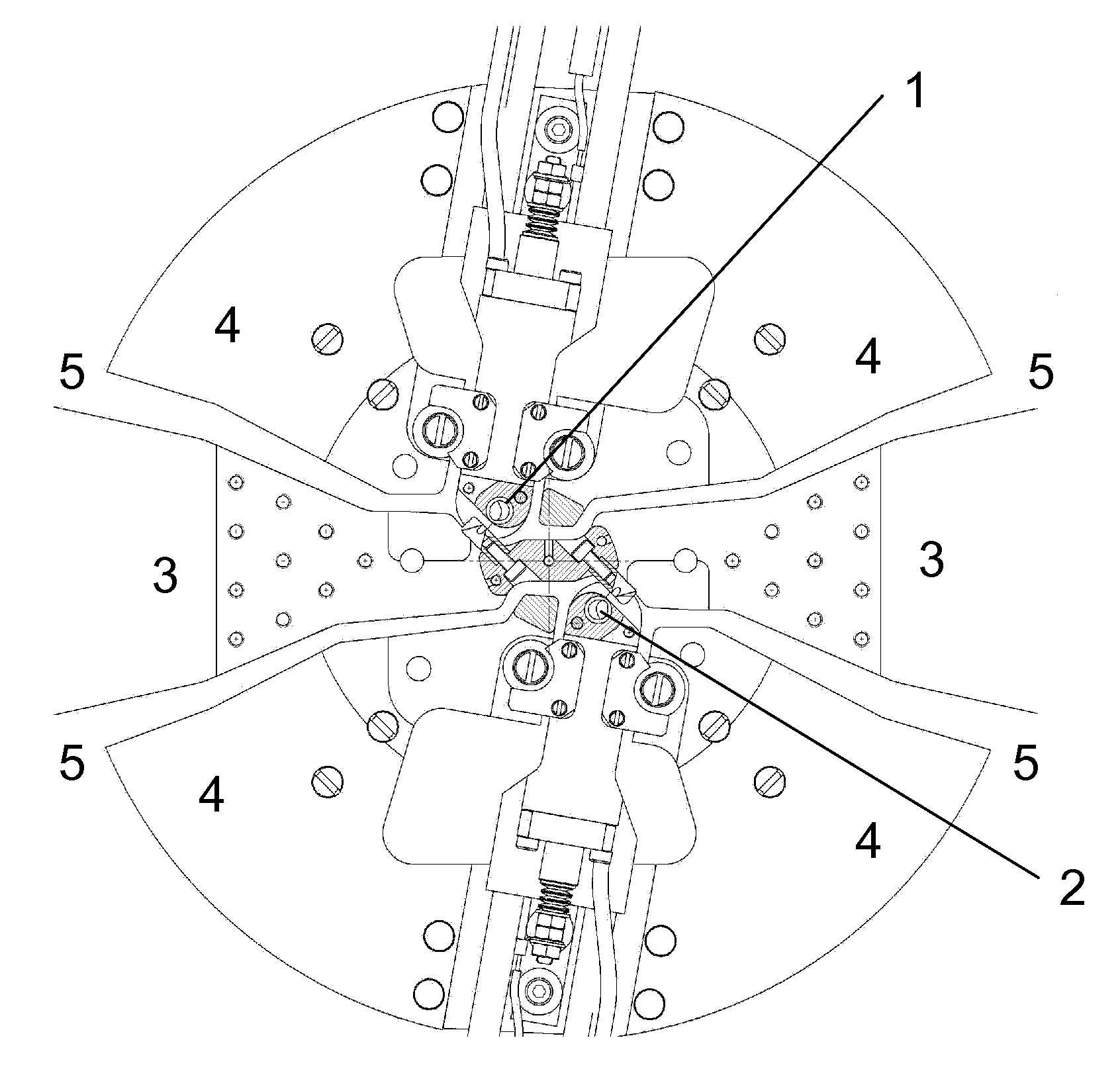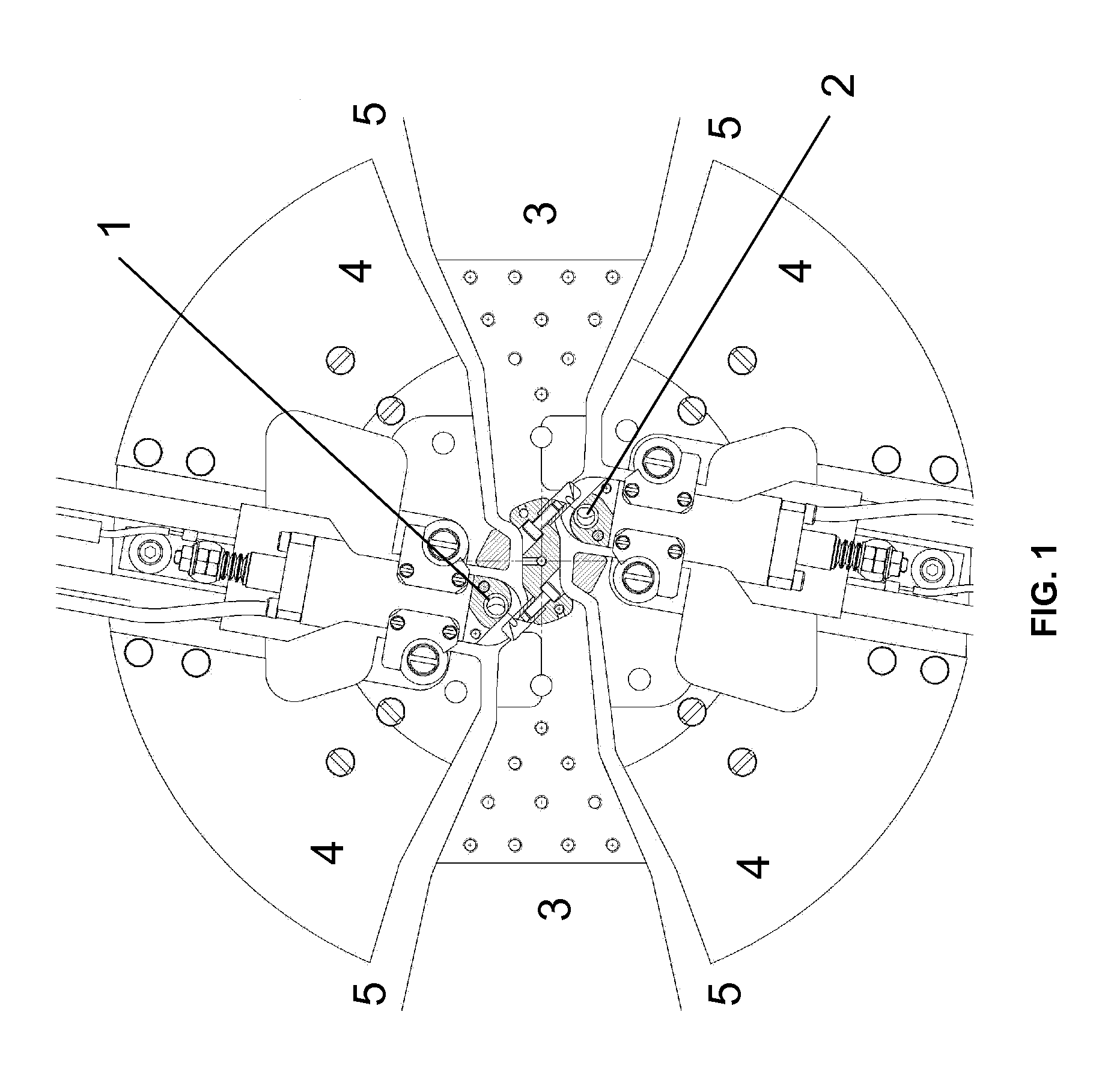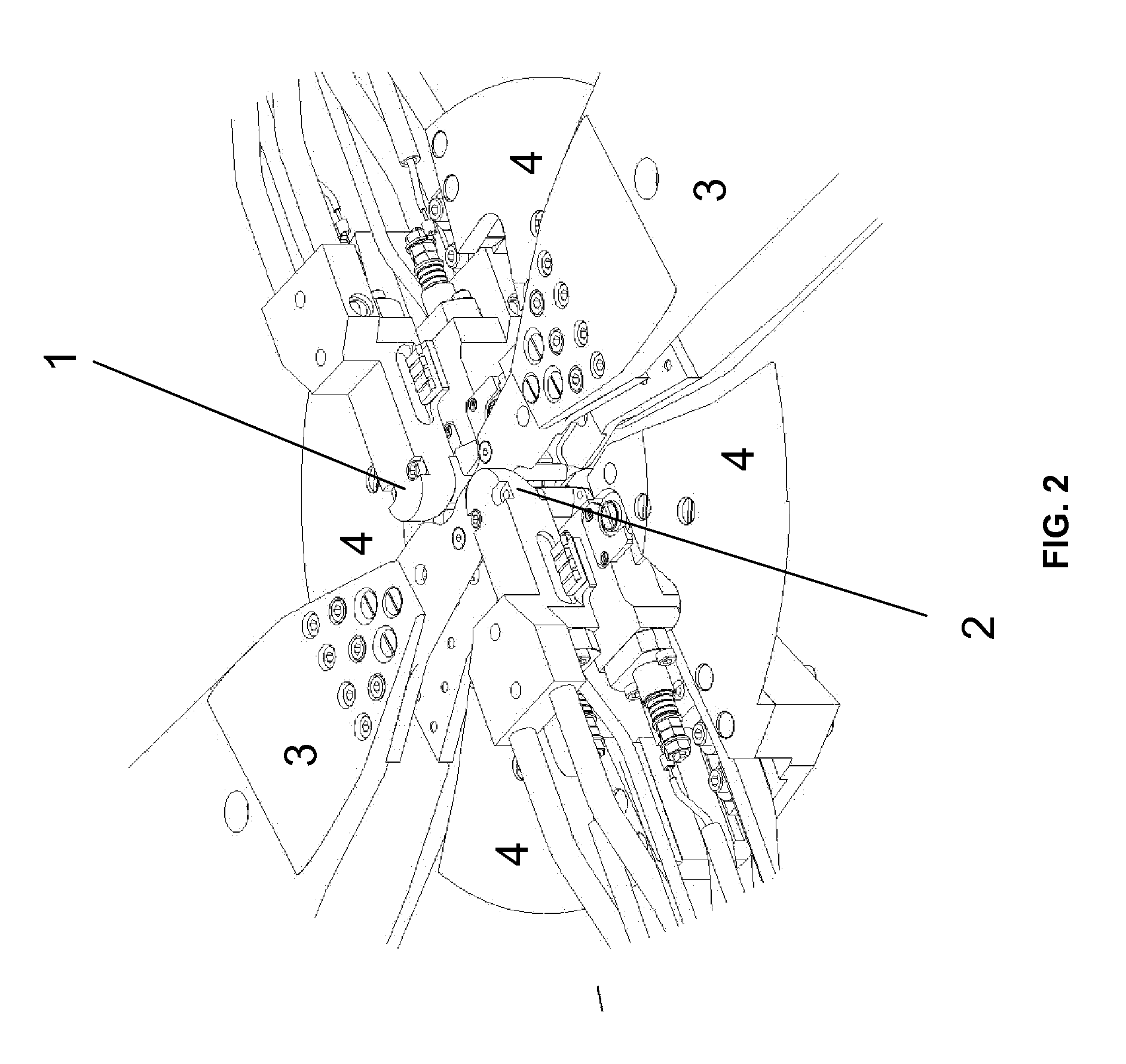Twin Internal Ion Source For Particle Beam Production With A Cyclotron
a cyclotron and internal ion source technology, applied in the direction of magnetic resonance accelerators, electrical discharge tubes, electrical apparatus, etc., can solve the problems of inability to meet the needs of particle beam production, so as to avoid particle loss, reduce the loss of particle beam during the first turn of acceleration, and increase the distance
- Summary
- Abstract
- Description
- Claims
- Application Information
AI Technical Summary
Benefits of technology
Problems solved by technology
Method used
Image
Examples
Embodiment Construction
[0029]The present invention will be now described in detail in relation to the appended drawings. However, it is evident that a person skilled in the art may conceive several equivalent embodiments or other ways of executing the present invention. The detailed description, the drawings and the calculation results are given with respect to the installation of two internal H− proton ion sources in a 18 MeV cyclotron. It is evident that the present invention can be applied to any type of cyclotron. The spirit and the scope of the present invention are therefore limited only by the terms of the claims.
[0030]FIG. 1 shows a representation of the central region of a cyclotron according to a preferred embodiment of the present invention. The central region of this cyclotron comprises:[0031]a first ion source (1) for producing charged particles[0032]a second ion source (2) for producing charged particles, the second ion source (2) being identical to the first ion source (1)[0033]a Dee electr...
PUM
 Login to View More
Login to View More Abstract
Description
Claims
Application Information
 Login to View More
Login to View More - R&D
- Intellectual Property
- Life Sciences
- Materials
- Tech Scout
- Unparalleled Data Quality
- Higher Quality Content
- 60% Fewer Hallucinations
Browse by: Latest US Patents, China's latest patents, Technical Efficacy Thesaurus, Application Domain, Technology Topic, Popular Technical Reports.
© 2025 PatSnap. All rights reserved.Legal|Privacy policy|Modern Slavery Act Transparency Statement|Sitemap|About US| Contact US: help@patsnap.com



